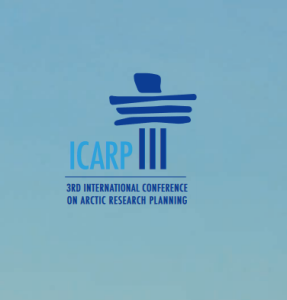 The ICARP IV process, led and coordinated by IASCInternational Arctic Science Committee, a non-governmental organisation whose aim is to encourage and aid cooperation in Arctic research.... More, is currently underway to define the key priorities in ArcticDefinitions of the Arctic vary according to environmental, geographical, political, cultural and scientific perspectives. Some scientists define the Arctic as areas having a high latitude, long winters, short, cool summers,... More research for the next decade.
The ICARP IV process, led and coordinated by IASCInternational Arctic Science Committee, a non-governmental organisation whose aim is to encourage and aid cooperation in Arctic research.... More, is currently underway to define the key priorities in ArcticDefinitions of the Arctic vary according to environmental, geographical, political, cultural and scientific perspectives. Some scientists define the Arctic as areas having a high latitude, long winters, short, cool summers,... More research for the next decade.
During the process, it’s important to also look back and estimate the significance of the current ICARP III research priorities in ArcticDefinitions of the Arctic vary according to environmental, geographical, political, cultural and scientific perspectives. Some scientists define the Arctic as areas having a high latitude, long winters, short, cool summers,... More research.
In INTERACT, we have encouraged our TA applicants and users to link their research and its outcomes with the ICARP III priorities from the beginning of our TA program in 2011 and have now initiated a process to analyze the impact and legacy of the research stemming from INTERACT Transnational Access to the station(s).
For that, we have created a survey to the previous and current INTERACT Transnational Access users on the scientific impact and legacy of INTERACT TA over a decade of access provision, and to identify in which way their research has contributed to e.g. the ICARP III research priorities and other international assessments.
You can access the survey from this link: https://link.webropol.com/s/Impact-Interact
